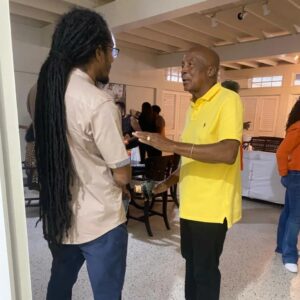Our Recent Blog Posts
Welcome to our blog, where we share ideas and plans for St James North Western.
Give Young People Real Chances - Not Lip Service
We keep hearing that “youth are the future” as if tomorrow will simply show up on its own. Young people don’t want opportunities tomorrow; they want them today. Young people aren’t a problem to be managed or a slogan to be recycled at photo ops; they are talent, energy, and ingenuity that our parish can either waste or harness. My plan is to build places, pathways, and pay cheques so talent stays here, grows here, and fuels our neighbourhoods.
Start with space. Safe, well–lit courts, parks 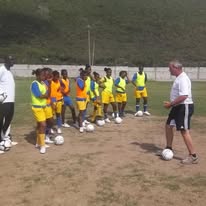 and performance plazas are not indulgences; they are preventive infrastructure. A basketball court with a trained coach, a weekend studio with a sound system and mentoring, or a skate zone with daytime programming takes kids off the street and into supervised practice, teamwork and pride. Those spaces will be consistently programmed, with evening study hours, coding workshops, arts nights and sports leagues so there’s always something constructive to join.
and performance plazas are not indulgences; they are preventive infrastructure. A basketball court with a trained coach, a weekend studio with a sound system and mentoring, or a skate zone with daytime programming takes kids off the street and into supervised practice, teamwork and pride. Those spaces will be consistently programmed, with evening study hours, coding workshops, arts nights and sports leagues so there’s always something constructive to join.
Then add real pathways to work. Empowerment centres will be local hubs where homework help meets career counselling. They will house STEAM workshops, trades training, media labs and business clinics that link directly to paid apprenticeships and summer placements with local employers. Training without a job is a hobby; training with a paid placement is a career start. We will negotiate hiring pledges with businesses, so a certificate leads to a first pay cheque and create transport stipends, so an opportunity isn’t lost at the bus stop.
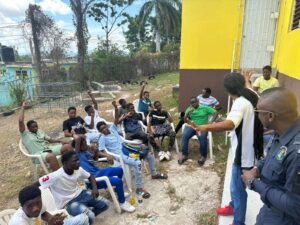
Paying young leaders is practical policy, not charity. We will fund youth–leader training and create paid civic roles – from after–school coordinators to safety marshals -so the energy that keeps our communities running is recognised and sustained. When young people earn while they learn, they develop skills, résumé and the dignity that comes with work. Intergenerational programming will be woven into this: elders teach trades and stories; young people teach digital skills. Respect is a practical currency, and mutual learning builds stronger, more connected communities.
Achieving results. Every programme and space will be designed with outcomes in mind such as participation rates, certifications earned, internships secured, and jobs obtained. We will track these results openly, celebrate successes and learn from setbacks. Our aim isn’t just to keep young people busy; it’s to give them a foothold in careers, a stake in their future, and a reason to stay where they belong – right here, in their communities.
This is about more than programmes; it’s about turning talent into opportunities. When youth are engaged, supported and paid, communities become safer, families become stronger, and our entire parish benefits. We don’t just promise a future – we build it, step by step, today.
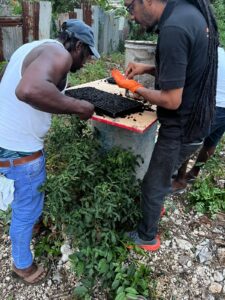
If you want a campaign that invests in real opportunities, votes for results, and creates lasting change, then choose a leader with a plan and a record that delivers.
Vote Allan Bernard – for a vibrant future powered by our young people.
Not Just Talk - Action You Can Count On
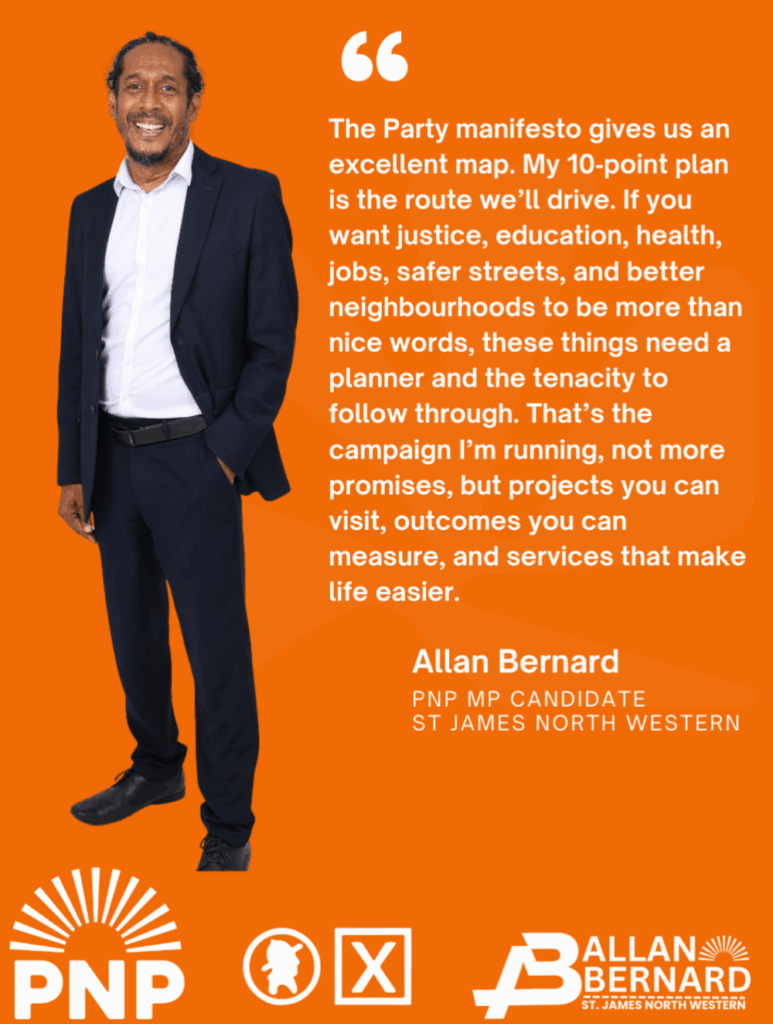
I don’t run on slogans; I run on steps you can count, places you can point to, and results you can measure. Talk is cheap; action requires a budget, a calendar and follow‑through. That’s why this campaign isn’t a string of speeches about change – it’s a sequence of deliverables that turn national ambition into local work, and work into better lives on our streets.
By now you would have read the PNP’s manifesto under the acronym JAMAICA LOVE – Justice for all, Access to quality education, Modern infrastructure, Agriculture and food security, Innovation and industry, Care for the vulnerable, Accountable government, Land and housing, Opportunity for youth, Violence prevention, and Environmental resilience. Those are the right pillars. My job is to take that compass and build the roads, clinics, clubs and classrooms where those ideas actually happen. Let me show you how the national vision becomes action in our parish.
- Safer Community
Safety is the currency of daily life. Promising “violence prevention” from afar is meaningless if your child can’t play outside. That’s why I’m partnering with the JCF, community leaders and the Community Safety and Security Branch to make prevention community‑driven consultative committees, well‑publicised meetings, and expanded youth clubs and uniformed groups so prevention isn’t just a night shift but a neighbourhood rhythm. Policing without trust is noise; prevention with community ties makes streets safer and families calmer.
- Transforming Communities, Growing Our Local Economy
A thriving local economy is the social programme that works. The manifesto calls for innovation, industry, and food security – and I translate those big ideas into local jobs, thriving nano, micro and small businesses and streets that hum with activity again. We’ll back entrepreneurs in general and those within the creative industries with micro-grants and pop‑up markets, turn vacant lots into urban farms that feed schools and support local vendors, and build ICT hubs that help a young designer or mechanic sell beyond our parish. This isn’t abstract economic theory; it’s a straight line from a grant application to a supplier invoice, a payroll stub and a landlord who stops worrying about rent. Local tourism, trade fairs and support for cultural industries will turn our stories into livelihoods, so talent stays here and helps the place prosper.
- Stronger Community Groups, Progress Through Partnership

But money without muscle won’t move. The manifesto champions accountable governance and justice; I insist that those values live in our community groups. Strong citizens’ associations, active neighbourhood watches and well‑resourced youth organisations will sit at every table where decisions are made. We will fund training, provide small project grants, and create clear channels so resident voices don’t get lost in bureaucratic echo chambers. That is how policy becomes practice: when the people who use services help design them.
- More Opportunities for Young People
Young people are a priority, not a project. I will create safe, well‑lit recreational spaces and empowerment centres where teens can learn practical skills, get homework help, meet mentors and access paid apprenticeships – because a certificate without a job is just decoration. We’ll programme entertainment zones and sports leagues, subsidise transport so no one misses an opportunity because of a bus fare, and weave intergenerational programmes that let elders pass on skills and stories. Every site will report outcomes – certifications earned, internships placed, jobs begun – because accountability should measure results, not intentions. Give young people room to grow and clear paths to work, and the rest follows: safer streets, stronger families and neighbourhoods that keep their best talent.
- Education that Empowers
Education is where the manifesto and my plan meet in the smallest hands. I will expand scholarships and bursaries, so financial hurdles don’t become career dead ends, and prioritise early childhood education so every child starts school ready to learn. After‑school programmes will link directly with local employers and colleges, turning classroom skills into on‑ramps for real employment. We will invest in teacher training, classroom resources and wrap-around services – because a hungry student can’t learn and a stressed family can’t support study.
- Better Healthcare, Closer to Home
Health care should not be a day’s travel away. The manifesto’s care for the vulnerable becomes my push to expand and upgrade neighbourhood clinics, deploy mobile health teams, and set up telehealth hubs for remote consultations. We’ll focus on chronic care, vaccinations and maternal health so problems are caught early and treated locally. That’s better health, lower costs and fewer last‑minute emergencies.
- Caring for Our Seniors with Action, Not Words
Caring for seniors means action. My plan turns community rooms into senior clubs where medical check-ups, benefits assistance, social activities and light‑home support happen under one roof. These hubs will reduce isolation, catch health issues early and save on emergency costs while restoring dignity to those who raised our families and ran our businesses.
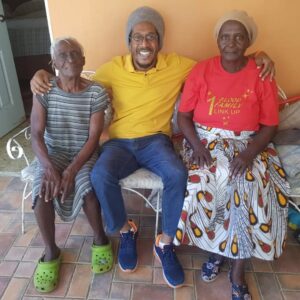
- Skills Training for Young People
Skills training is not a buzzword – it’s the bridge to pay cheques and pride. I will put STEAM labs, maker spaces and mobile training vans into our schools and community centres, and make sure those skills lead somewhere: employer‑backed apprenticeships, short, stackable credentials and paid internships that are recognised by local businesses. We’ll upskill teachers, run bootcamps on weekends, and give young entrepreneurs micro-grants and mentoring so a prototype becomes a product, and a hobby becomes a business. We’ll measure what matters – certificates earned, internships converted to jobs, and businesses started – because success that can’t be counted is success that doesn’t stick.
- Better Communities
Fixing the fundamentals is how neighbourhoods start to breathe again. I will work with parish agencies, water authorities and licensed waste contractors to set service standards that are public and enforceable. That means regular waste collection, community education campaigns, bulk‑waste days, pothole blitzes and targeted water‑supply fixes. It also means giving residents simple tools to hold services to account: complaint trackers, published schedules and community liaisons so a reported leak turns into a repair, not a shrug. Small things done well – clean streets, reliable water, safe sidewalks – change the tone of a place and the prospects of the people who live there.
Environmental resilience is not an add‑on; it’s part of every project. Whether we’re repairing drains before the rains or greening schoolyards to keep children cooler, climate‑smart choices will be built into road repairs, housing fixes and urban agriculture plans. That means planting for shade, fixing drainage to prevent flooding, and supporting practices that keep soil and livelihoods productive. In short: protect what we have so we can pass it on.
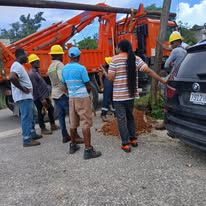
- Honest, Open Leadership
None of this works without honest, open leadership. My promise is simple – open books, clear timelines, and regular, plain‑spoken updates. Contracts will be visible, budgets will be readable, and progress will be posted where people can see it, not hidden in committees. We’ll set up independent oversight panels, guarantee response times for complaints, and hold monthly town halls across the parish so leaders meet residents where they are. Accountability isn’t a slogan; it’s a habit. I want you to be able to check the dashboard, call my office and know your voice made a difference.
The Party manifesto gives us an excellent map. My 10‑point plan is the route we’ll drive. If you want justice, education, health, jobs, safer streets, and better neighbourhoods to be more than nice words, these things need a planner and the tenacity to follow through. That’s the campaign I’m running, not more promises, but projects you can visit, outcomes you can measure, and services that make life easier.
If you want results, let’s get to work. On election day, your vote is the tool that turns my plan from paper into pavement, clinics, clubs and jobs – so please come out and vote. Don’t leave this to someone else; make the choice that makes a difference.
Vote Allan Bernard – not for slogans, but for a plan that delivers.
